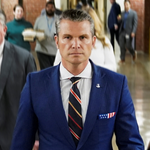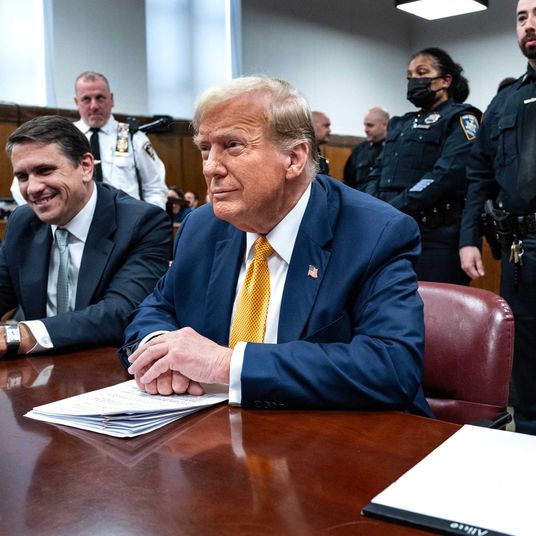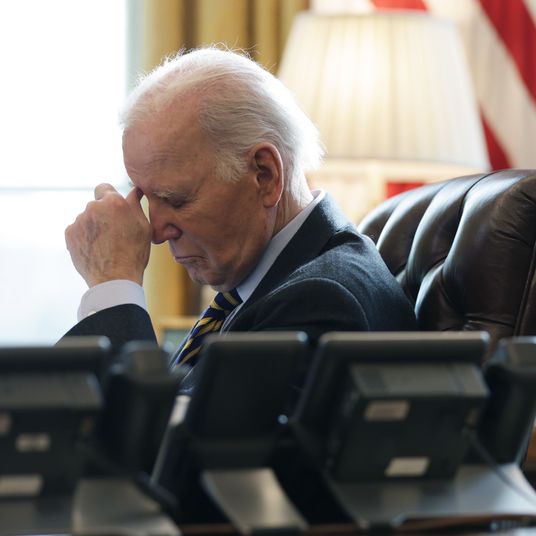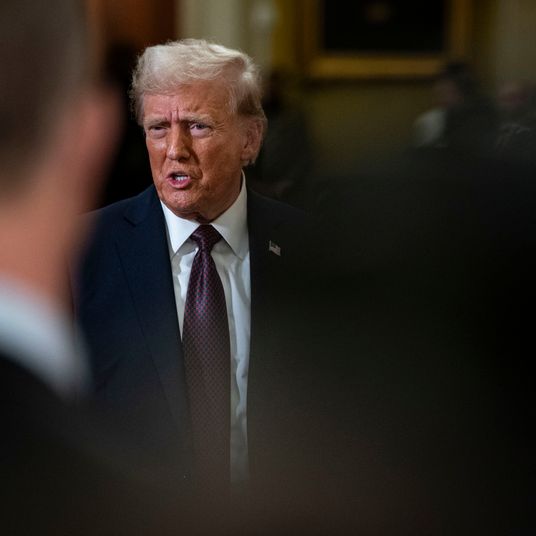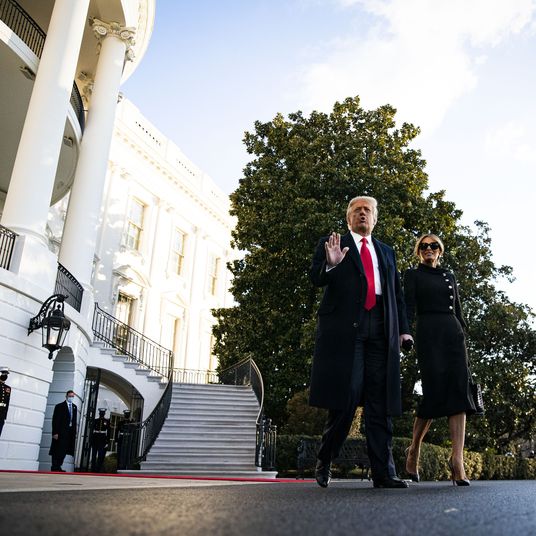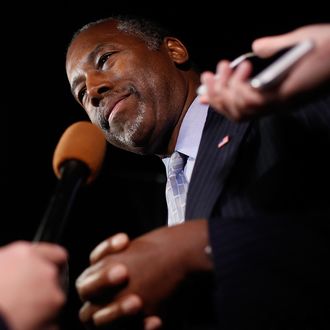
The third GOP debate wasn’t a particularly great look for anyone onstage, though some (Marco Rubio) came off looking stronger than others (Jeb! Bush). Most of the candidates blamed this on CNBC’s moderators, who dared to ask about subjects like flawed tax policies, Donald Trump’s signature cartoonishness, and fantasy football.
At one point, Ted Cruz declared, “The questions that have been asked so far in this debate illustrate why the American people don’t trust the media,” while Rubio accused Carl Quintanilla, Becky Quick, and John Harwood of dredging up “discredited” attacks. (Rubio also referred to the “mainstream media,” which, it’s safe to say, includes CNBC, as the Democrats’ “ultimate super-pac.”) Meanwhile, Bush’s campaign accused CNBC’s producers of not giving his boss enough time to speak, and RNC chairman Reince Priebus said that the network “should be ashamed.”
On Thursday, Ben Carson said he would lobby for “a change in format” for future debates. What would the changed format look like, exactly? It’s not totally clear, but it probably wouldn’t include a mention of his ties to a shady nutritional-supplement company. From the Hill:
Carson called for more speaking times for candidates and for the next debates to have “moderators who are interested in actually getting the facts and not gotcha questions” following a debate in Colorado that sparked widespread criticism of CNBC’s moderators.
“I’ve asked my staff to reach out to the other campaigns to talk about a change in format,” Carson, a frontrunner for the GOP’s nomination, told reporters in Denver ahead of a campaign speech at Colorado Christian University.
“And we’re looking for an opportunity to actually be able to explain what your program is, what your philosophy for leadership is and then be questioned about it,” Carson added.
Carson and Trump successfully bullied CNBC into altering its plan for Wednesday night’s event, and now they’re rallying the other candidates to the cause. Politico reports that, along with advisers to Bobby Jindal and Lindsey Graham, they’re organizing a meeting for representatives from each campaign to discuss how they can take control of the debate process — and the Republican National Committee isn’t invited.
While RNC chairman Reince Preibus seemed as angry as any of the candidates, some conservatives argue he’s actually to blame for Wednesday night’s fiasco. Many of the candidates feel the RNC failed to protect their interests in negotiations with the debate hosts.
The meeting is set to take place in Washington, D.C., on Sunday night, and the organizers said representatives for Carly Fiorina, Mike Huckabee, Rand Paul, Marco Rubio, and Rick Santorum have already agreed to attend. “I think the campaigns have a number of concerns and they have a right to talk about that amongst themselves,” said Christian Ferry, Graham’s campaign manager. He said they intend to “find out what works best for us as a group.”
Fox Business Network and The Wall Street Journal, the hosts of November 10’s debate, haven’t heard from the campaigns yet. Sources at the network are said to be pointing to the Fox News debate as evidence that they’re capable of hosting a fair and balanced discourse. How quickly they’ve forgotten Trump’s weeks-long feud with Fox News over its anchors aggressive questioning.
This post has been updated with information about the candidates’ Sunday night meeting.


